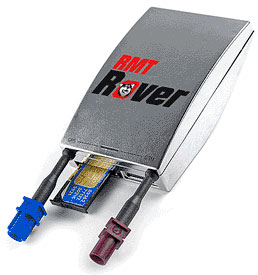Speeding: Radar Gun vs. GPS
Saturday, July 19, 2008 -
While an 11-year old, Louisville, Kentucky boy is using a toy radar gun to get drivers to slow down through his neighborhood, the police are finding that real radar guns might not be a match for GPS--at least not when contested in court.
According to a press release issued by Rocky Mountain Tracking, an 18-year old man, Shaun Malone, was able to successfully contest a speeding ticket in court using the data from a GPS device installed in his car. This wasn't just any old make-a-left-turn-100-feet-ahead-onto-Maple-Street GPS; this was a vehicle tracking GPS device--the kind used by trucking fleets--or in this case, overprotective parents. The device was installed in Malone's car by his parents, and the press release makes no mention if the teenager knew that the device was installed in his vehicle at the time.
 |
| Credit: Rocky Mountain Tracking |
"However, when he took the stand to begin his testimony, Dr. Heppe corrected that written report, saying that the Rocky Mountain Tracking device was "very" accurate, to within a couple of meters on location and to within 1 mph on speed. Dr. Heppe also pointed out that the GPS device released instantaneous data, and not data averaged over a distance."
Needless to say, with Dr. Heppe's revised testimony, Malone was found innocent of speeding.
Obviously, Rocky Mountain Tracking's motivation for publicizing this incident is to promote the accuracy of its RMT Rover GPS device. But it also brings up a larger issue: The sophistication of vehicle telematics is increasing all the time. Are we now at the point that the data generated from our personal location devices (such as GPS in cell phones and in-car navigation devices) is considered reliable enough to help exonerate us from false accusations? But isn't this also a slippery slope, where the same data can be used to incriminate us as well? It's one thing for parents to keep a close eye on their kids, but what happens when jealous spouses are tracked, or law enforcement uses the data to know where you've been. When does it become an invasion of privacy? Tell us what you think.
Sunday, July 20, 2008


0 comments:
Post a Comment